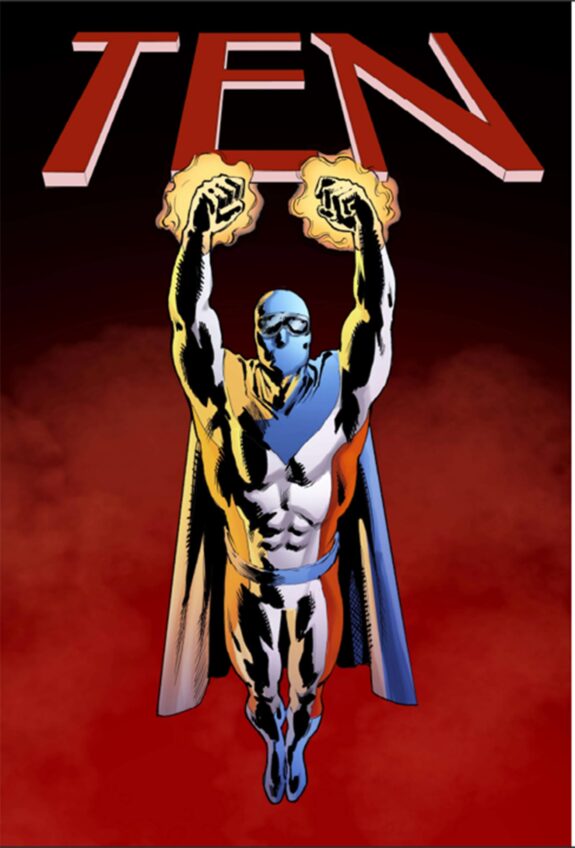Playwright Sulayman Al-Bassam tackles a universal quest in the age of Middle East dictatorships


Fayez Kazak, the Mullah, and Carole Abboud, the Lady, in “The Speaker’s Progress.”
Playwright Sulayman Al-Bassam tackles a universal quest in the age of Middle East dictatorships
This summer, Boston’s Company One presented Jason Grote’s play, “1001,” a re-imagining of “The Arabian Nights” as a parable of the Middle East as a world pulled between its past and future.
Written and performed by Americans, the satire transports its characters from a mythical ancient Persia to Manhattan on 9/11.
Last week, at the Paramount Center, ArtsEmerson: The World on Stage presented a satire spanning an old and new Middle East written, directed and performed by Kuwaitis: the Sulayman Al-Bassam Theatre production of “The Speaker’s Progress.”
Linking freedom of artistic expression in the Arab world with political power, the inventively staged play is loosely based on Shakespeare’s “Twelfth Night.”
Its playwright and director, Sulayman Al-Bassam mines the bungling identity switches, stereotypes and rule-breaking follies of Shakespeare’s comedy to portray the atrophy of dictatorship in the Middle East. His production likens the yearning for romantic love in Shakespeare’s play with the craving for freedom.
Performed with English supertitles in English and Arabic — with occasional asides in Italian, French and Chinese — Al-Bassam’s production is a sardonic parody of an Orwellian society. With its poetic language and elegant staging, the production is also an elegiac tribute to the power of theater.
Surrounding a platform on an otherwise dark stage is the high-tech apparatus of a bureaucratic office — computers, desks and a lectern. Above the platform is a movie screen.
At the lectern stands the Speaker, a reformed radical theater director, now purged and a spokesman for the regime. He introduces a restaging of his renowned 1963 production of “Twelfth Night,” an event designed to appease a restive populace longing for theater, which has been banned by the ruling regime. Officials observe the proceedings via an on-stage camera.
Before the play-within-a-play begins, the Speaker, a droll Sulayman Al-Bassam, conducts a “live interview” with an elderly actress who performed in the 1963 production. Appearing on a screen above the platform, the Actor from the Golden Era, the regal Sa’ad El Farraj, defiantly insists on the value of theater. She tells the Speaker that theater “tempers the winds and tides of oblivion,” that it is “a lighthouse in the fog, a witness to the crime, the memory of a mother’s song.”
Then the performance begins. As scenes of the 1963 production are projected on the screen, a troupe of non-actors — government functionaries in tan and grey lab coats — mount the platform and perform the same episodes. Others at the desks alongside the stage command the performers’ every move as if they are robots or chess pieces.
Describing the staging as “a forensic reconstruction,” the Speaker conducts what amounts to a deconstruction of the elements of stagecraft — the blocking of scenes, the script and acting. The anti-production becomes a subversive demonstration of the power of theater.
As the ensemble plays a mix of roles such as the Ruler/Clown, Mullah, Drunken Uncle, the Lady, they are forbidden to display any emotion. But they can barely contain themselves.
The nuanced staging accents the emergence of their humanity. Shadow puppetry simulates handholding (forbidden in public). Ribbons of smoke evoke a magical atmosphere. The sound design shifts from metallic abstraction to swelling melody as notes of romance seep into the performance.
Disguised as a young man, Amal Omran as Girl/Boy triggers the meltdown as the emissary of the king to the woman who has captured his heart. She bursts into lyrical, sensuous language that evokes traditional Arabic erotic poetry.
What the Speaker describes as “contagion” — spontaneous improvisation — spreads as the players become seized by real emotion. Deft lighting effects frame the stage with a scarlet proscenium, turning it into the setting for real theater. The bare platform suddenly sprouts a set — a row of plants that stand in for an orange grove. A rack of glittering costumes descends from the ceiling like a vessel from another planet.
Lab coats come off and the players don Elizabethan wear. The harsh Mullah, now in a ridiculous purple velvet suit, becomes a lovesick lecher, Malvolio.
The play is at its best as this peak of liberation builds momentum. Near the end, shifts in tone from satire to anger and pain are abrupt and the Speaker inexplicably disappears, never to return. The muddled ending may be a work in progress: Al-Bassam altered the play’s original pessimistic conclusion as he witnessed the transformative events of the Arab Spring.
Yet what stands out is the compelling energy and stagecraft of this production, which confirms the power of theater, in talented hands, to tell a story that crosses languages and worlds. What will Al-Bassam and his adventurous theater troupe do next?






